EPISODE 225 -- THERE FOR YOU

POP CULTURE SPIRIT WOW
As you are no doubt aware, this has been a big week for conspiracy theories. A major news story broke at the beginning of the week, one that speaks to a shocking turn of events that even more than usual has everyone reeling.
I realize, it can be really contentious and toxic to talk about such revelations right now. The gravitational forces of stories like these are just massive, almost black hole absolute, but I’ve tried really hard to make these pages a space that resists that horrible event horizon in favor of other things.
Like dogs walking on treadmills.

And interspecies reconciliation.

And celebrities being celebrities.

In a way my thesis statement for the newsletter this year has been that no matter what the press and social media might be suggesting, there is still more to our world and our lives than the worst things we’re hearing. And that staying in touch with that other stuff is not just a quirky good idea, but pretty much essential for our happiness and sanity.
So that’s what I aim to offer here, usually with pop culture as a big part of the landscape or at the very least our travel mixtape.
But honestly this week’s story has just been so massive, it seems impossible to move forward without at least acknowledging its presence.
So, begging your indulgence, and at the risk of losing some of you, I need to do that. Right now. Here goes:
*deep breath*
Nothing we saw on Friends actually happened. The entire show is just Rachel’s anxiety dream the night before her wedding.
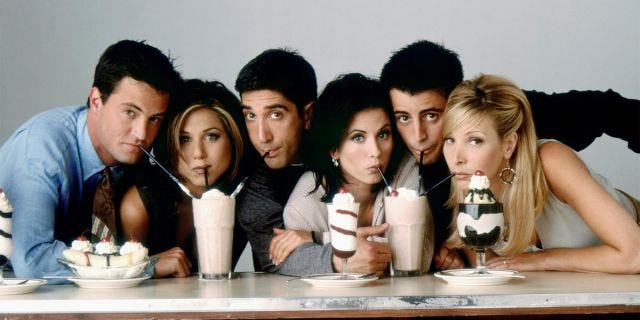
That's right: there were no shared milkshakes. No years spent somehow in nice apartments while more or less living at the Central Perk. No Gunther.
I know. I’m outraged too. The show has been off the air for over a decade, but I remain deeply invested in Chandlica, Joey's acting career and Phoebe ending up with Paul Rudd.
I mean, I guess in retrospect it makes sense that the only world in which Joey and Rachel end up together, even for just a little while, has got to be some kind of fantasy. But honestly, I liked them together way more even than Monica and Chandler.
There are obviously some other really disturbing implications of this revelation. Chandler’s ex-girlfriend Janice – was her laugh actually like that? Or did Rachel just unconsciously want her best friend to end up with Chandler so much that she has imagined Janice in the least likable way possible?
EVERYTHING WE THINK WE KNOW ABOUT JANICE MAY BE A LIE, PEOPLE.

And what does this news tell us about Ross? Clearly, Rachel was attracted to him. But when you consider his overall arc and character, it also appears her subconscious was desperately trying to warn her that that there was something deeply wrong with this man, and that she should stay away from him.

Consider: Ross is never not obsessed with Rachel. Sure, some of that might be a classic narcissistic fantasy dream – Oh my God, he's always thinking about me! But with Ross it goes way beyond that. He’s still fixated on Rachel long past when she’s moved on, even after he's supposedly moved on. For God's sake, at his wedding to Emily he replaces “Emily” in the vows with “Rachel”.

Exactly, Emily. This guy is messed up.
Stepping back, of the six friends, it’s pretty clear Ross is the only one that never really shows any growth. His story is a endless loop of dating people, either losing them because of his own mistakes/obsession with Rachel or impulse-marrying them and then getting divorced. Consider: he's been divorced three times before he’s 30.
And he never quite fits in the group, either (which, when you consider that one of the members of that group is Phoebe, is really saying something). He’s regularly the butt of everyone else’s jokes; he’s the only one that never lives with any of the others (except for Rachel). He doesn’t even live in the same building they do.
(He does move in briefly with Chandler and Joey in season five. Notably, his habits prove so annoying that they immediately try to get him to move out. And when he does move, where does Rachel imagine him going? To an apartment previously occupied by a creepy, ugly nudist.)
RACHEL, LISTEN TO YOURSELF, GIRL.

There’s clearly a lot more about the Rachel anxiety dream revelation to break down. Like, What was the significance of Chandler and Joey co-owning a monkey? Was Gunther a real person or just a dream embodiment of anxiety? (Could he look more like Munch's The Scream?)
And given that Phoebe’s twin sister Ursula was on Mad About You, is that show’s story of newlyweds Paul and Jamie Stemple Buchman also just a part of Rachel’s dream? Are Paul and Jamie actually the dream version of Rachel’s parents? Is Rachel actually their daughter Mabel?

Tell me Jamie does not have Rachel hair.
And Paul certainly does look like someone from Rachel's life...
But clearly, what’s truly haunting is realizing that while we thought we were enjoying a warmly funny, easy going sitcom about six friends, in fact Friends was an intensely disturbing drama about a woman desperately trying to warn herself that she and her four friends are in danger. We read theme song “I’ll Be There For You” as a joyous anthem for community. But no, it's the voice of a lonely obsessive singing to a woman unconsciously aware of and terrified by his obsession.
The only real question is, when Rachel woke up after the show ended, did she understand? And was it too late?

++
So no one told you life was gonna be this way
Your job's a joke, you're broke, your love life's D.O.A.
It's like you're always stuck in second gear
When it hasn't been your day, your week, your month, or even your year, but
I'll be there for you
(When the rain starts to pour)
I'll be there for you
(Like I've been there before)
I'll be there for you
('Cause you're there for me too)
You're still in bed at ten and work began at eight
You've burned your breakfast, so far things are going great
Your mother warned you there'd be days like these
But she didn't tell you when the world has brought you down to your knees that
I'll be there for you
(When the rain starts to pour)
I'll be there for you
(Like I've been there before)
I'll be there for you
('Cause you're there for me too)
No one could ever know me
No one could ever see me
Seems you're the only one who knows what it's like to be me
Someone to face the day with, make it through all the rest with
Someone I'll always laugh with
Even at my worst, I'm best with you, yeah!
It's like you're always stuck in second gear
When it hasn't been your day, your week, your month, or even your year
I'll be there for you
(When the rain starts to pour)
I'll be there for you
(Like I've been there before)
I'll be there for you
('Cause you're there for me too)
I'll be there for you
(When the rain starts to pour)
I'll be there for you
(Like I've been there before)
I'll be there for you
('Cause you're there for me too)

++
Speaking of fan theories, Game of Thrones comes back this Sunday. And man is the internet alive with theories about so many things. (Today's evidence that the world is broken: Mashable has an entire article in which a Magic 8 Ball is asked to predict who lives and dies.) I have to say my favorite is this piece about Jamie Lannister, which overturns pretty much every standing theories about who will be the savior of Westeros, and yet makes so much sense.)
Fan theories about shows are not exactly the same as conspiracies, but I feel like our interest in those two things come from a similar place, maybe even a spiritual one. We all want there to be more going on than we see on the surface; and not just a want, a lot of the time we have the instinct that there is more to it all – whether “it” is how our boss actually got the top job, how our parents met or what’s really going on between Cameron and Ferris in Ferris Bueller’s Day Off – than we see. That life is actually a lot more interesting than we might initially know.
In real life the revelation of conspiracies are not generally a source of delight. (Ya think?) They spark outrage, which might be another word for intense fear. “Who can I trust? Is anyone fighting for what’s right? Are we going to be okay?”

But conspiracy theories are also intensely attractive. If this is true, what else is? We want to know in part so we can draw out the problems, but buried within I think at times there's also a sense of wonder at newly realized possibility. Horrified wonder, certainly, but still, wonder and curiosity.
(A paradox: After we find out we’ve been lied to, is it me or do we actually become more open to crazy possibilities? You’d think being betrayed would make us more distrustful of what anyone tells us, but it also casts everything into doubt. So it’s as though being lied to makes us more susceptible to being lied to, rather than less. Which is like a kid who gets burned by a flame thinking the only solution is to stick his hand in more.)
A bunch of prominent shows of late have leaned hard in to our eagerness for mystery and puzzles. The first season of Westworld was actually taking place during two different time periods, with the events of one character who seemed to be in the same era as everyone else proving to be occurring decades earlier. In Mr. Robot it’s unclear not only what is actually happening at times (that is, literally what is going on in the scenes we're watching as compared to what our delusional narrator is showing us) but who is in fact real. And The Good Place has a twist at the end of the season as great as any conspiracy theory.
But it’s very hard to pull that sort of a show off. Because secrets aren’t enough. You have to have characters with compelling desires and struggles. Some people say Lost began to lose steam the very second it revealed what was in the hatch; having spent a season teasing out that mystery, nothing could have really satisfied.
Now the creators argue that they did have a very solid plan, and that was to tell a story about whether we can ever be redeemed, be free. And in that light the ending to me makes so much sense.
You'd think I could spoil the ending, it aired almost a decade ago, but I have to admit it hit me so hard I would hate to ruin it for anyone even now. Let these three gifs suffice to describe it:


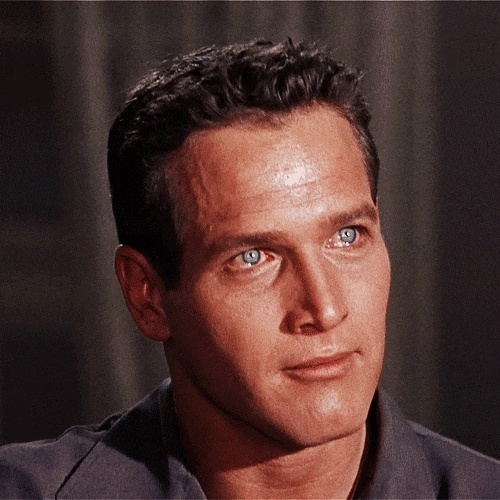
Still Lost certainly did also set up an expectation that it was a show about secrets to solve. The pilot literally ends with one of the characters looking around after a couple crazy mysteries have been revealed and asking “Guys, where are we?” Meanwhile a show like Game of Thrones, despite all the buzz right now about who is Azor Ahai and whether there is a secret third Targaryen, has never really been "about" the mysteries. The pilot begins with a sort of monster attack on the other side of the Wall. But then as soon as it's all over we’re shown the monster.
Likewise, while the pilot notes what will prove to be one of the series’ biggest and most important questions – who is the mother of Jon Snow -- it’s a small point of interest, one almost nobody cares about, really.

Whatever, Jon Snow. Just get your Prell and go to the Wall.
In a way what George R. R. Martin demonstrates is that all it takes is a little to feed that engine in people. A prophesy in one book, a bit of unclear history in another, one minor character obsessed enough with a prediction. Just that little bit, and the readers will do the rest.
Which when you think about it is also a lot like conspiracy theories. Once they get going they do not need seem to need much to stay alive. They have a remarkable capacity for self-propulsion, and also self-maintenance. Every denial or bit of evidence to the contrary gets folded back into the bigger narrative. Of course they’re going to say that. Of course they can wheel out contrary data. If we already know that nothing is what it seems, that there’s more to it all than what they’re telling us, then no argument has a capacity to dispel the questions.
It’s like the guy who brought a gun into a D.C. pizza shop in December to try and get to the bottom of whether a bunch of politicians were involved in a horrifying ongoing crime against children. And when he stood down because after a few hours of investigating the scene he decided the theory was false, his fellow believers dug up the fact that he’d been an extra on a movie at some point, and decided he was a plant, a false flag meant to deceive them.
It’s depressing, but also kind of creative: What is a conspiracy theory or a fan theory but our attempt to participate in something we’re passionate about? We may say we’re trying to uncover the truth, but really I think we’re also trying to help make it, to be a part of the storytelling. (That idea of "If this is true, what else is?" is actually a main principle of improv comedy.)
It’s like that toy scratch pad they had when I was a kid where you’d “draw” on a tablet with black film on top, but really what you were doing was scraping away the film to reveal the colors underneath.
When I did that, was I drawing something or uncovering something that was already there?
Does it have to be an either/or?
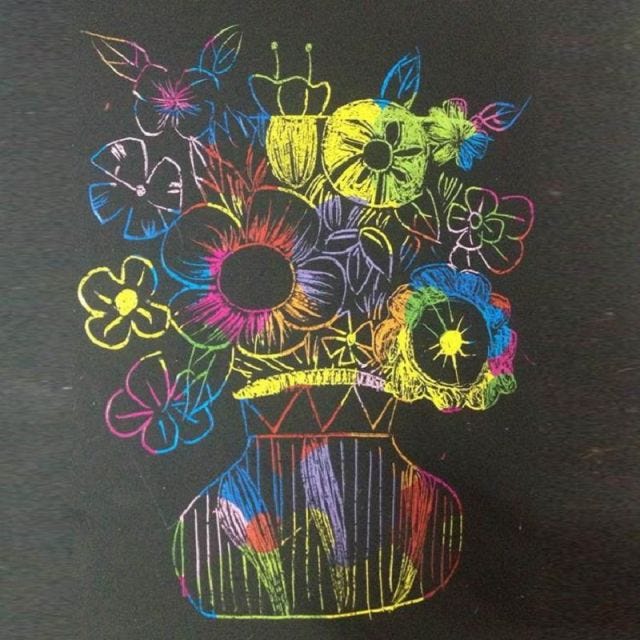
++ In film school we would talk about how a great plot seems "inexorable and yet unexpected" -- in retrospect, you feel like it had to go the way it did, but at the same time you did not seem it coming. As a writer you can think making that happen is about coming up with some insane new idea for the end. But that usually (always) comes off artificial and inorganic. Much of the time the best work comes when instead you look to the details of the early pages of your script. Your subconscious buries so much treasure there, just waiting to be realized.
At their best fan theories are an offshoot of that way of thinking. They take something we think we know well and uncover something more that ideally was already there, hiding in plain sight, which now that we see it changes everything.
Like, you know how Ferris Bueller is pretty much perfect in every way? Well, there's a Fight Club-like take on Ferris Bueller's Day Off that argues he was just a figment of Cameron’s imagination created to help him escape his horribly stultifying family life. There's also the really dark but compelling theory that Sandy from Grease was dead the whole time.
(There's a whole Sixth Sense-y subgenre of fan theories all about how X was dead/a hallucination/all a dream. Maybe the best riff on it was actually done by a TV show. In season four of Buffy the Vampire Slayer, suddenly Buffy has a teenage sister. And by suddenly, I mean everyone on the show acts as though the character has been there all along when she absolutely hasn't. And it's just left hanging there for a while as to what is actually going on. It's just so great.)
Down the fan theory rabbit hole I also found a whole bunch of great "Blended Universe" fan theories, where people argue that the two stories occur concurrently or subsequently in the same storyworld. So for instance, the idea that The Flintstones and the Jetsons take place at the same time . Rather than being proper cavemen, the Flintstones actually live below the clouds of the Jetsons’ Orbit City on an Earth that’s been thrown back into the stone age by some sort of nuclear war.
In fact, there really is an episode where the two families meet each other.

Supposedly Elroy made a time machine. But come on: Elroy?
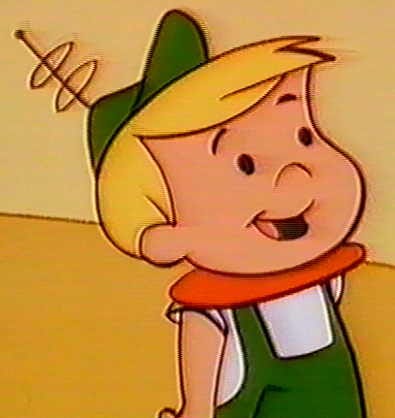
Another popular blended timeline theory is that Breaking Bad is the prequel to The Walking Dead, that in fact Walter White’s famous blue meth, which by the series’ end was being sold everywhere, was actually doing a lot more damage to people than anyone realized, and eventually caused the zombie apocalypse.
That theory sounds crazy, I know, but there is some fantastic evidence. AMC and The Walking Dead creators actually laid in some fantastic Easter eggs.
My favorite finds, though, were the super dark “That character you love was actually a monster” theories, because they really are so deeply unsettling and completely change the way you see things.
For instance, perhaps you’ve heard that Jessica Fletcher of Murder She Wrote was doing a lot more than writing about murder? How else to explain how a crime novelist in Maine keeps stumbling upon murders?
Or the theory that the Scranton Strangler serial killer who keeps getting mentioned in the later seasons of The Office might not only have been a character on the show -- some thought Toby, who was obsessed with the case (and also the worst); Gabe, who totally has serial murder face; or the ultra-weird Creed, who runs away from a murder mystery game when he think it’s a genuine police investigation and comes to work one day in a blood splattered shirt without knowing it that it was in fact Halloween – but the show's actual lead JIM FREAKING HALPERT.
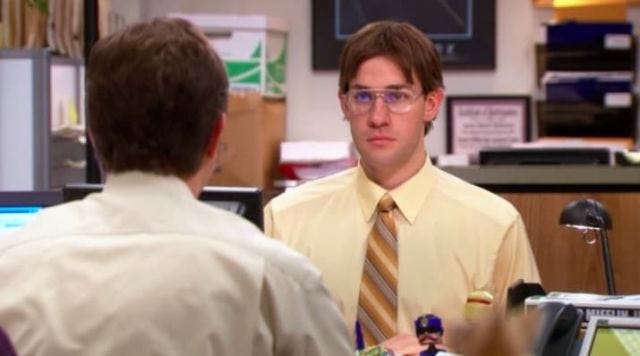
I cannot accept this as truth, because I refuse to do that to Pam. But man is it a great idea.
For those who like children’s television, there’s also the pretty compelling theory that since being introduced in 1972 Count von Count has actually been feeding on the children of Sesame Street (and what’s really disturbing, that the adults all know about it and are either in his thrall or just okay with it).
I always knew there was something wrong with that Bob.
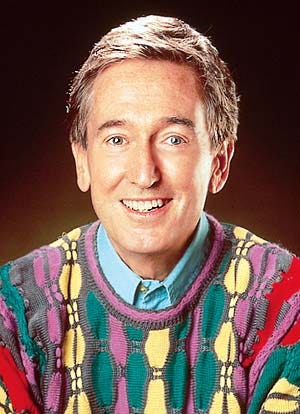
He's like, "What if Mr Rogers were dead inside?"
Even ads today get fan theories: this spring Domino's was running commercials like this playing off of the ending of Ferris Bueller, with a guest appearance of Alan Ruck (Cameron). The role Ruck ends up playing has led to an incredibly dark theory about Ferris, Cameron and the main character of the ads.
We've got a lot of problems right now, I know, but the human imagination, it is a wonder. ++ LINKS ++ Kristian Naim, who plays Hodor on Game of Thrones, has been cashing in a lot of late. I have to say, while I’m happy to see him get what I think must be some pretty sweet paychecks, every single instant I see the world of commerce using Hodor I die a little more inside. Poor Hodor never stops getting used and abused.

As part of the ongoing Frankenssaince (which I am loving) Senator Al Franken and David Letterman released a bunch of short videos this week about climate change. It’s worth it just to watch the first couple; they’re really wonderful.
(Franken, walking Letterman through his offices: “I think people here are excited to see you.” Letterman: “They’re probably not.”)
For those who took a gander at my first foray into microfiction last week, you might find this article interesting. The future of war is clearly competing fan groups. It will probably start on Reddit.
Lastly, the real victim in that other conspiracy theory currently making the rounds of our country: sensible punctuation (as usual). And The New Yorker responds. And so do I.
(Note: there’s some strong language both in the headline of that story and in the marvelous comments (which you should definitely read), but that is totally appropriate given the seriousness of the issue being discussed.) ++ Little more writing done this week, including a fun piece for America Magazine on Disneyland changing the Pirates of the Caribbean in which I got to invent a word. Next week is Comic Con in San Diego, which is always overwhelming, exhausting and fun. I'm hoping maybe I’ll be able to get a couple interviews for us. Cross your fingers. And have a good week.
And hey, in the meantime, if this isn’t your day, your week, your month or even your year, just remember, ROSS GELLER WILL BE THERE FOR YOU.
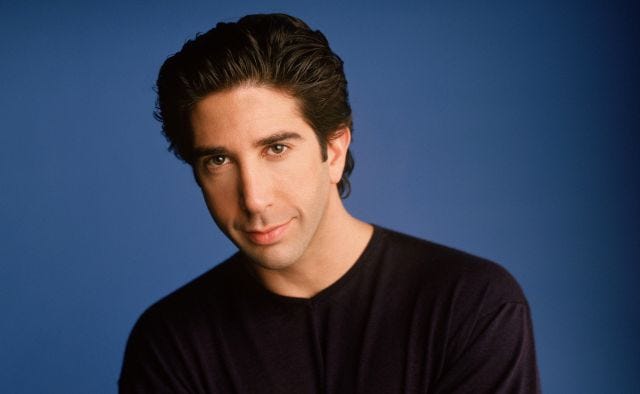
The real face of evil.

